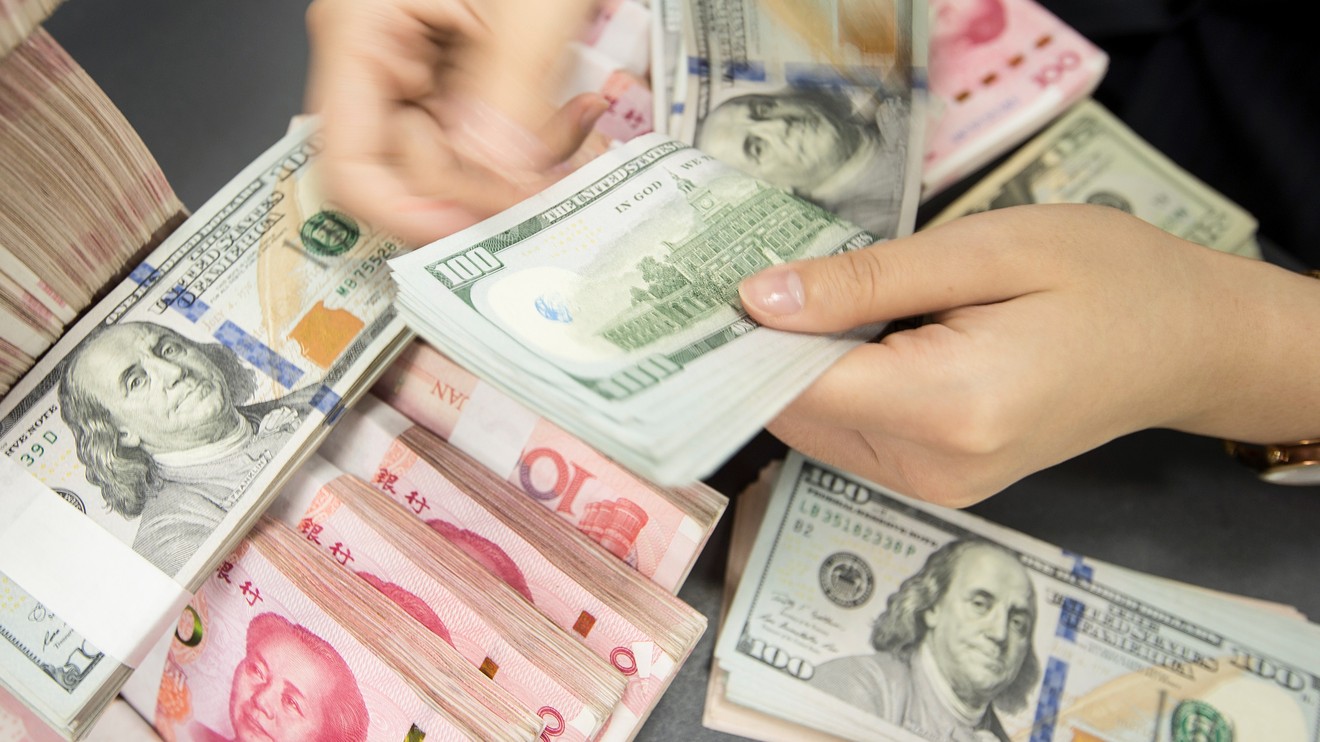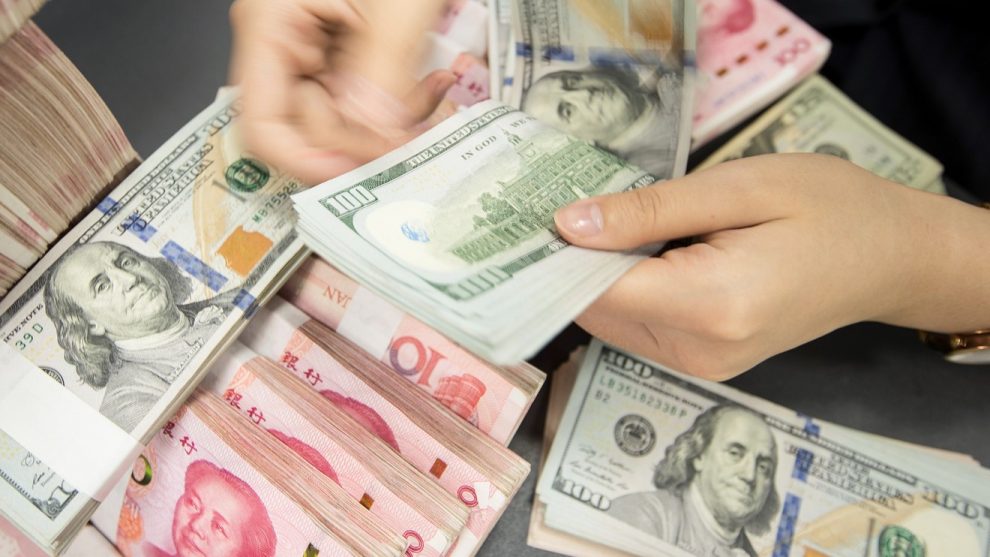
When China’s currency depreciation breached the psychological threshold of 7 yuan to the dollar this week, stock markets both fretted over a replay of the disorderly depreciation in 2015-2016 and feared that the yuan has become a retaliatory tool in Beijing’s trade war arsenal.
Both concerns are overblown. In fact, the Chinese currency USDCNY, +0.0596% isn’t likely to experience anything like a free fall in the coming months because worries about the response from EU and Japan will dictate policy makers to show restraint.
Read: China sets yuan midpoint weaker than 7 for second time this week
Many have pointed to the potential for massive destabilizing capital outflows as a constraint on yuan depreciation. But this time around, a more meaningful check on yuan depreciation is the harmful impact it will have on exports from the European Union and Japan. That in turn could prompt these two powerful economies to align with the United States in the ongoing trade war with China. Beijing knows full well that it cannot win a multi-front trade war and will want to prevent that from happening.
There are several reasons why capital outflows alone will likely be insufficient in dissuading Beijing from engineering a large depreciation. For one, although Beijing will certainly consider the effects of Chinese investors moving their money abroad, the pressure will be more manageable this time, in large part because the Chinese yuan is less overvalued than in 2015.
At that time, the yuan had appreciated by more than 10% between mid-2014 and August 2015, when the unexpected devaluation took place. This spooked markets into thinking that the yuan was considerably overvalued, which led to the subsequent depreciation and intense capital outflow pressures. In contrast, this time Beijing has been allowing the yuan to gradually depreciate since the trade war started so the currency is likely closer to its true market value than in the previous period.
In addition, Beijing now relies less on credit growth to stimulate the economy, and modest credit growth means less capital outflow pressures. Finally, Beijing now has more experience and tools in managing the pressure, such as closing a major loophole whereby capital outflows were being disguised as overseas investment.
But the global implications of a significant yuan depreciation are a legitimate concern for Beijing, particularly when it comes to the EU and Japanese economies. Any yuan depreciation against the U.S. dollar will likely translate into even larger depreciation against the euro or yen. This is because unlike the Federal Reserve, which can still cut interest rates and weaken the dollar, both the European Central Bank and the Bank of Japan have virtually no room to cut rates because they are already in negative territory.
The ECB and BOJ’s inability to cut rates means that in the event of significant yuan depreciation, the euro EURUSD, +0.1521% and yen USDJPY, -0.07% will appreciate against the U.S. dollar, making their appreciation against the Chinese yuan even greater. This is exactly what happened when the yuan depreciated earlier this week. What’s more, because the yuan has already been depreciating since May, both the euro and yen are now already near their strongest levels against the Chinese currency since 2019.
So this means any further yuan depreciation could devastate EU and Japan’s export sectors and negatively affect their overall growth, at a time when those economies are looking weak. Both economies would also feel a much stronger pinch because they have higher trade exposure to China compared to America. For instance, as a percentage of their GDP, EU and Japanese exports to China are one and five times higher, respectively, than U.S. exports to China.
Read: Why 7 is the ‘line in the sand’ everyone’s watching when it comes China’s yuan
Given how relatively weaker the EU and Japanese economies are compared to the United States, and with fewer monetary tools at their disposal to offset currency pressures, those economies will struggle to cope with any drastic yuan depreciation. This isn’t like to sit well with Brussels and Tokyo—which is already feeling added economic pain because of a heated trade spat with its neighbor South Korea—and could easily become politicized.
At that point, Beijing should be concerned that the EU and Japan could join the United States in a much fiercer trade war.
Economic and psychological pressure on China, if that is a potential consequence of a significant yuan depreciation, is likely a sufficient check on Beijing to not play with the currency fire.
Also read: Dollar buoyed as Kudlow says White House takes currency intervention off the table
Houze Song is a research fellow at MacroPolo, the think tank of the Paulson Institute in Chicago.











Add Comment